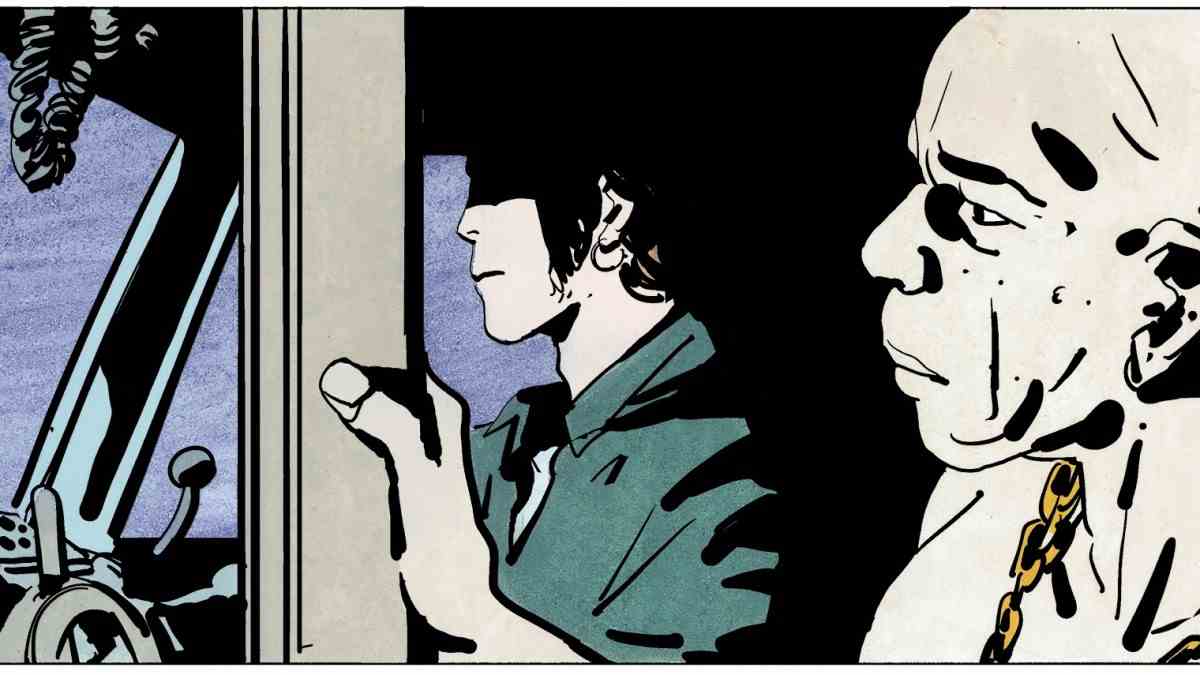Corto Maltese makes a giant leap in time. In the early volumes, created by Hugo Pratt (who died in 1995), the legendary graphic novel hero, a navigator and pirate, roamed the first third of the 20th century, he now leaves that wide open in the new volume “Black Ocean”. behind him, frees himself from the historical intrigues and traumata there – only Rasputin, the old scoundrel, reappears in the new volume. The unrest, the movement, the longing for freedom that make Corto Maltese the modern hero par excellence have remained. “I was looking for something… Or ran away from something? I don’t remember exactly.”
A new adventurer archetype born of counterculture and revolt
“Black Ocean” is narrated by Martin Quenehen and drawn by Bastien Vives, France’s young graphic novel star, for them Corto Maltese is a child of the new millennium, timelessly young, barely out of his teens, so without a captain’s hat and the tight skirt, but with a cargo jacket and baseball cap. A globetrotter without a homeland, a captain without a ship, with childlike curiosity and lightning-fast reactions when he needs to defend himself and maneuver his way out of dangerous situations. In a CIA office in Peru, he meets Colin Powell, then US Secretary of State. It’s the year 2001 and the day when a new era begins, with two explosions, two planes crashing into the Twin Towers in New York .
It’s a new archetype of the adventurer born of counterculture and revolt, says Benoît Mouchart, head of graphic novels at French publisher Casterman, where Corto Maltese originally appears, in the epilogue to the volume – the first adventure of Hugo Pratt was released in 1967. Corto never aligns himself with any ideology, he has his own interests in mind and, in order to achieve them, associates with power and corruption. Again and again he is willing to spontaneously commit himself to the oppressed and threatened. “He is neither naïve nor a moralist, rather an anarchist modern Odysseus who vigorously defends himself against the label ‘hero’ … When dealing with women, Corto is more seduced than seducer, but definitely an admirer.”
Seducer and seduced: Corto and Freya, playfully naked in the sea.
(Photo: writer & reader)
Corto Maltese is sexier than any other male comic book character, he arouses the greatest desire among readers, says Bastien Vivès. The woman at his side in “Black Ocean” is Freya, TV filmmaker and “eco-warrior” – what connects the two is less than love and more at the same time. Corto enters her cabin at night, she is asleep, he takes out a book and reads about a hidden treasure in Peru that he wants to search for. Then she wakes up, he’s asleep now, and she takes the book that’s on his chest – he had to fight for the book and got a stitch in the chest in the fight – she reads it. “Why are you always chasing things that don’t exist?” she asks Corto when he wakes up. “And you, why do you always make films about things nobody wants to see?” The ancient knowledge and youthful energy both add up to an erotic scene. She knows he will leave her. Later, when they meet again, they swim together in the sea, playfully naked.
The book in question has its own meaning for everyone. Corto reads the reference to an Inca treasure in Peru that survived the colonialist looting, a group of old nationalist Japanese want to use his help to force the emperor to abdicate – they never accepted Japan’s defeat in the world war, their organization calls itself “Black Ocean” and is being watched by the secret services. Corto then quite casually accepts that the treasure is probably just a chimera – the dreamlike transparency of this figure lies in such nonchalance: this mythical clarity without melodramatic effects, captured in beautiful pastel pictures by Hugo Pratt. Patrizia Zanotti, Pratt’s close collaborator, colored the first few pages of the new volume, after which it switches to black and white, into an aggressive kabuki spectacle.
Martin Quenehen, Bastien Vivès: Corto Maltese. Black Ocean. Translated from the French by Resel Rebiersch. Writers & Readers, Hamburg 2022. 184 pages, 24.80 euros.
The pictures by Bastien Vivès seem like sketches, unfinished, washed up, they do not depict what is happening, but rather convey the movement that is inherent in it. “Drawing develops a sense that has never existed before”, writes Jean-Luc Nancy, in his magnificent book “The Pleasure of Drawing”, in which he analyzes the art of sketching – a sense that “is inspired by a intention worn, which merges with the movement, the gesture and the momentum of the line. Her delight is in enjoying this unfolding, or the unfolding itself, as it invents itself, finds itself and is pushed further, on the trail of what was nonetheless not there before.”
The new “Corto Maltese” is once again a heroic song of independence, and on the last pages, in the very last image, one experiences, downright pragmatically, how one retains such independence today, under the dictatorship of global social media.

